‘‘A wise and self-confident person was at the wheel of Tatarstan in the difficult period of the Russian history’’
About own way of the economic development of the republic dedicated to the first president’s 80th birthday
''He knows how to listen. To listen to not only functionaries but ordinary people,'' chairman of the board of the Commercial and Industrial Chamber of Tatarstan Shamil Ageyev who knows Mintimer Shaimiev well tells about him. This ability to take problems of both a single person and all republic to heart allowed the first president of Tatarstan thoughtfully and peacefully defend the right of the republic on its way in difficult circumstances of the 90s. As a result, people started to talk about a phenomenon of Tatarstan and its president. For this, the federal centre names the republic an ''island of communism''. Realnoe Vremya tells what the policy of ''soft'' entrance into the market meant, how Tatarstan achieved the revaluation of its industrial enterprises in overestimated coefficients and many other things.
Soviet legacy and sound judgement of transitional period
Model of Tatarstan. What are its components? What is the phenomenon of the republic? Let's remember the dissolution of the USSR in December 1991 that became a real shock for the majority of the population. After all the modern market economy of Tatarstan is based on the foundation of the Soviet Union. Big sectors of oil and gas extraction, petrochemistry, mechanical engineering, aircraft manufacturing and entire cities were created in the Soviet era. KAMAZ PJSC and Naberezhnye Chelny, Tatneft PJSC, Nizhnekamsk Petrochemical Complex, which included tyre production, very Nizhnekamsk and Kazan Aviation Complex with plane and helicopter production were among them. This transition from the Soviet system to market economy is called the model of economy. ''A wise and self-confident person was at the wheel of Tatarstan in the difficult period of the Russian history. Mintimer Shaimiev always defended the interests of his republic seriously and thoroughly,'' former Minister of Finance of Russia Aleksey Kudrin expresses his opinion on pages of a recently published book about the first president of Tatarstan.
Conservation of the dialogue between ethnicities and religions in the republic and relations with the federal centre based on agreement are another constant of the Tatarstan model. And ''sound judgement is the key secret of the phenomenon of Tatarstan, though many people were ready to ignore it,'' poet, translator and dramatist Ravil Bukharaev stated.
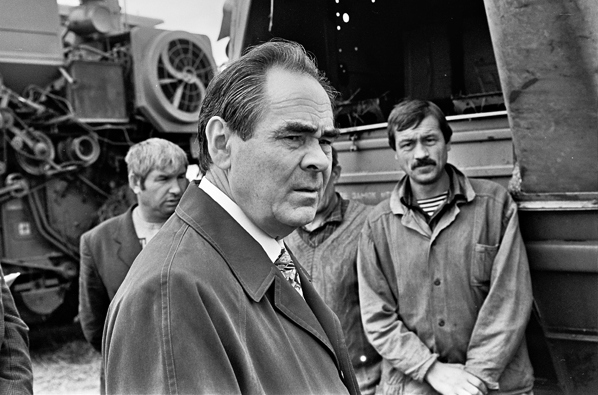
We called our politics a ''soft'' entering the market. In this combination, the three words are key
What else if not sound judgement was the driver of the republic when in January 1992 the Russian government released prices that started to grow rapidly. It was possible to keep them by increasing production volumes. But economic ties were broken, previous agreements did not work. Then Mintimer Shaimiev and the government of Tatarstan softened the strike on the population of the republic by subsidising prices from the regional budget. At the same time, there were given coupons for local consumers, so that subsidised products did not leave Tatarstan. ''As a result, market basket of the republic at the end of September 1992 was 1,280 rubles, while its average price in Russia was 1,903. When agricultural producers had a good harvest one year later, next year the government of Russia took measures, which were similar to those that Tatarstan took one year before,'' Ravil Bukharaev provided data in his book Tatarstan: We can! President Mintimer Shaimiev and creative sound judgement.''
''We called our politics a ''soft'' entrance into the market. In this combination, the three words are key,'' very Mintimer Shaimiev explains the direction of the behaviour in the book. ''Generally speaking, we are entering the market, but without losses that can be avoided at the beginning, without a sudden decline in people's life. Then Moscow called Tatarstan and its approach an ''island of communism'' not without reproach and mockery.''
''Tatarstan did not need any coefficients''
There was a production fall on this ''island of communism' as well as in whole Russia. In 1992, it reached 12,6% in Tatarstan, while the decrease in oil extraction made up 8%. The greatest fall equal to 25% was in defence industry factories because state orders reduced by 47,4%. ''We had a task to conserve the economic basis of the republic. Other regions that blindly followed the way offered by Moscow immediately lost the greatest part of their enterprises,'' deputy of the State Council of Tatarstan of the fifth convocation, deputy chairman of the State Committee on Economy, Investments and Entrepreneurs Marat Galeyev tells Realnoe Vremya. Privatisation in Tatarstan was complicated because many big enterprises in the republic were federal or joint businesses. ''In Russia, it is necessary to remember that the law on privatisation was not adopted. Privatisation was carried out on the president's instruction. We performed it in the republic according to a law adopted by the Parliament,'' Marat Galeyev specifies.
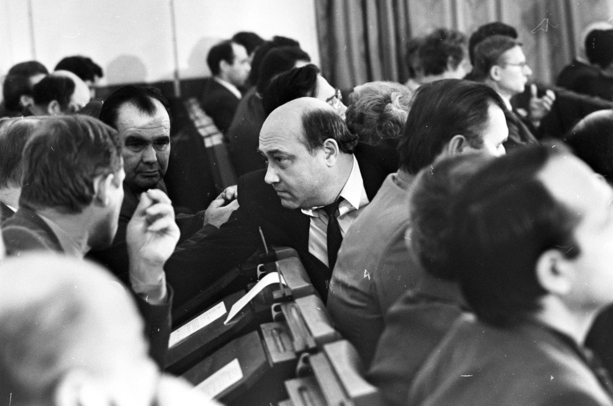
Marat Galeyev remembers that on one of his working days, he saw revaluation coefficients of key assets in sectors in a so-called economic newspaper. ''I saw and understood that it was unprofitable for us. Coefficients of the extracting sector were low. They needed to be high, regional enterprises needed to become unavailable and shares of Tatneft, for example, needed to be impossible for purchase by vouchers. I went to Prime Minister Mukhammat Sabirov and said Tatarstan did not need any coefficients. He gave us two hours to create new coefficients. Together with Damir Bikbov who was the first deputy head of the State Committee of Tatarstan on State Property Management at that moment, we created a project. The revaluation started with new coefficients. In the past, many people were afraid to purchase enterprises of the republic for a cheap price,'' Marat Galeyev.
So Tatarstan assessed its property 25-30% higher than the federal centre and admitted all-Russian vouchers together with its payable privatisation vouchers. There was introduced a quota for privatisation share volumes, and the state had the control stock. Later the head privatisation ideologist of the republic Damir Bikbov said: ''Privatisation in Tatarstan ended without shooting and bloodshed.''
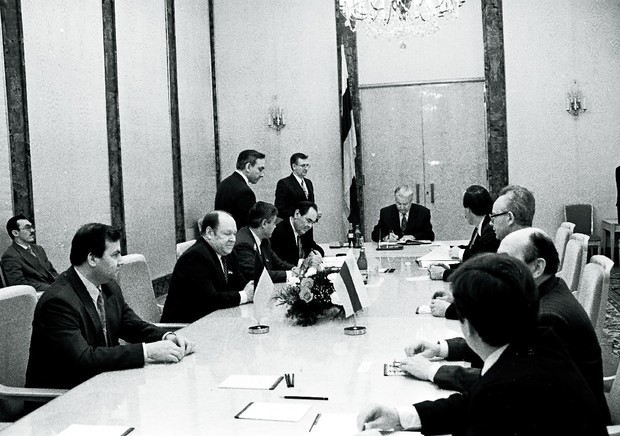
Recovery and built economic processes of the republic again took place during very difficult political events. At the height of debates in 1992, Tatarstan signed its first economic agreement with Russia, which was followed by a number of similar agreements. In politics, everything was more difficult, though the first negotiations on signing of a bilateral agreement started on 30 March and lasted till 2 April 1992. It took two years for the signing of the so-called big agreement on mutual delegation of power between Russia and Tatarstan. On 6 November 1992, Tatarstan adopted its Constitution that confirmed the status of the republic as a state associated with Russia on the basis of a bilateral agreement and democratic manifestation of the Declaration on State Sovereignty on 30 August 1990.
Witnesses of those events admit that the big document signed in 1994 should be characterised as the biggest political movement of Tatarstan and its President Mintimer Shaimiev. On its instruction, a working group that held negotiations on the agreement-94 in Moscow was headed by Vasily Likhachev. ''Believe it or not, I understood the formula of relations that were registered in this agreement between Moscow and Kazan came to me in a summer morning. I rushed towards the table and wrote it down,'' member of the Central Electoral Commission of Russia Vasily Likhachev tells Realnoe Vremya. Russia and Tatarstan became united structures based on the Constitution of Russia and Constitution of Tatarstan and the present agreement, it was the formula.
''We signed the first agreement of this kind in Russia on 15 February 1994 at the Kremlin. This document is very important not only in terms of history but also in terms of practical federalism,'' Vasily Likhachev is convinced.
6 months later, Shaimiev stressed the key principle of the political position of Tatarstan in his lecture at Harvard in the USA: ''The most important thing is that we don't violate the integrity of the Russian Federation. We found a formula where Tatarstan unites with the Russian Federation on the basis of this agreement marking power between state power bodies of Tatarstan and Russia recognising the Constitution of both Russia and Tatarstan. At the same time, we signed over ten intergovernmental agreements while specifying and realising this agreement. They are about property, military construction, banking, budget affairs, personnel preparation, etc. The most important political meaning of the agreement was that having signed the agreement with the former autonomous republic, Russian divested itself from a possibility to develop as a unitary state. I think it is for the good of both Russia and Tatarstan.
How Property Development Bank became Ak Bars Bank
It was necessary to create a big investment bank of the government to support industrial enterprises that had great difficulties. ''In 1990, when the big inflation began, I came to Mintimer Shaimiev, I already was a deputy at that moment, and told the budget of the republic received 60bn rubles and almost 300bn rubles went to the banking system passing the budget by. It was decided to create a bank in 1993,'' executive director of the State Housing Fund under the president of Tatarstan and first head of Ak Bars Bank Talgat Abdullin remembers the events of the previous years.
By the way, a curious story took place when naming the bank. ''I offered to call it Ak Bars from the very beginning probably because of the impression of the manifestation of the state sovereignty of the republic. In addition, it was a symbol of the emblem. However, Mintimer Shaimiev denied the offer. He said we should not politicise because we were already criticised. Then we left just BARS and prepared such names as Property Development Bank, Village Development Bank, etc. But the Central Bank said to change the name. There already were three BARS banks at that time. As we were BARS Joint-Stock Commercial Bank according to registration documents, we easily solved the problem. We just upped and changed the position of quotation marks and got Ak Bars Bank. When I came to Mintimer Shaimiev to tell we could not name as we wanted, he said: ''You pressed again, you decided to do it as you like.'' I said: ''No''. I don't know whether he believed me. Probably now he will,'' Talgat Abdullin says.
However, not only creation of an investment bank was needed to support the industry by the government. ''During the uneasy transition to market relations, a need for an industrial and investment company with highly professional personal, mobile and flexible management form, good production potential that is able to realise several regional investment programmes was felt in the republic. For this reason, TAIF PJSC representing a property form that was new for the republic, combining state, private and foreign capital was created. We decided to create this kind of company in August 1995,'' Mintimer Shaimiev says in the book.
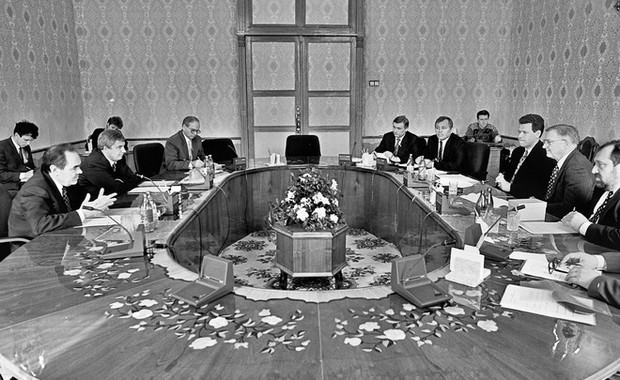
Appearance of famous ''We can!''
The idea of slum liquidation programme was born during a period that was difficult for the republic. ''Everything started with serious debates in the Supreme Council of the republic on budget distribution. We were in a situation when the state did not have the money to build houses, all housing programmes stopped, and Kazan had dilapidated buildings. A question arose: what to do? The queue did not move, new apartments were not allocated, present dwellings became old. The social tense grew and was about to reach its peak. Distribution of the republic's budget was discussed many times. Costs on construction of apartments were calculated. For instance, there was a decision to expend money on an overhaul of all old buildings. It turned out that the price of an overhaul of an old apartment block was more expensive than the construction of a new one. However, there were not any financial sources for construction,'' Talgat Abdullin tells Realnoe Vremya.
Money was needed much. It all became a sign of an economic crisis taking place across the former Soviet Union. In 1995, it was decided to create a housing fund under the Cabinet of Ministers of Tatarstan that would deal with the liquidation of old houses. ''We started to look for money. Then Mintimer Shaimiev showed his will again: a tax on slum liquidation was imposed. Considering the weak economy, it was difficult to calculate its price. It was 0,3% of the turnover of enterprises in the first year, then it became 0,6% and 1%. A part of payments of citizens – 50% of communal services and 15 rubles from every tonne of extracted oil – were sent to the fund. So we formed sources to finance the programme,'' Talgat Abdullin remembers the details.
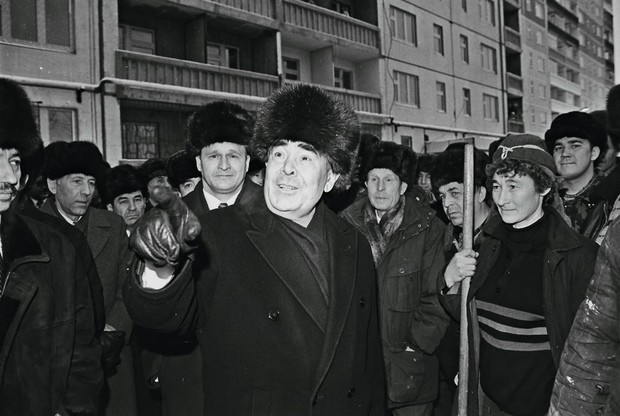
However, the availability of money did not solve all the problems. According to Abdullin, it was necessary to create an urban system. Besides, the construction organizations were weakened. ''It was necessary to collect, to recover everything. All this great work began around the fund. The collaboration that united the whole country,'' says Talgat Abdullin. ''I remember the phrase said by Mr Shaimiev that we destroyed the old housing and the old way of thinking. It was the first draft, and, perhaps, the most significant one, which infected us with the spirit of victory, allowed us to realize what we were capable of. It was when the famous phrase of Mintimer Shaimiev appeared, ''We can!'' The amazing ability of Mintimer Shaimiev, which I have always admired is how he could always find in a big problem a link with the help of which you can turn the course of events and to give it a desired direction.''
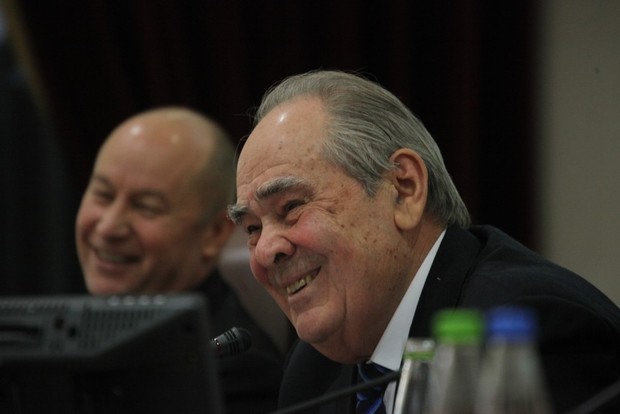
''The program of demolition of dilapidated housing proven to be very useful for people, vital to the economy, and also very important politically. After all, we proved that we, as a sovereign republic, are independent enough and can develop. Besides, we should not forget about such important element that we, in the Republic, believe to be our heritage – it is interreligious, interethnic harmony, which is based not only on cultural basis but also on shared goals. And when common goals are associated with the creation and creation, everything will be ok,'' concluded Talgat Abdullin.